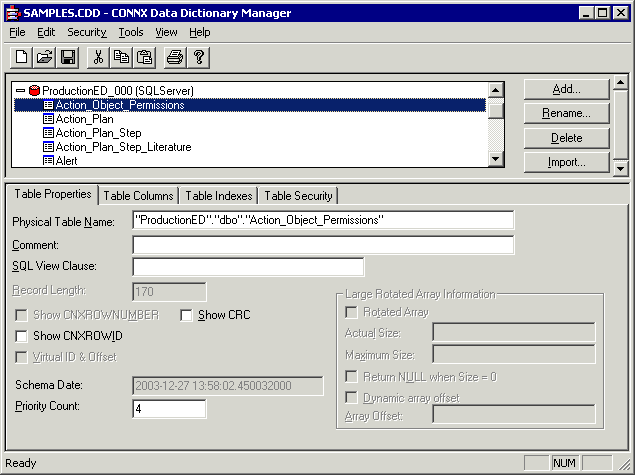Click the Import button in the CONNX Data Dictionary Manager window.
The Import CDD dialog box appears. Select SQL Server from the Import Type list box.
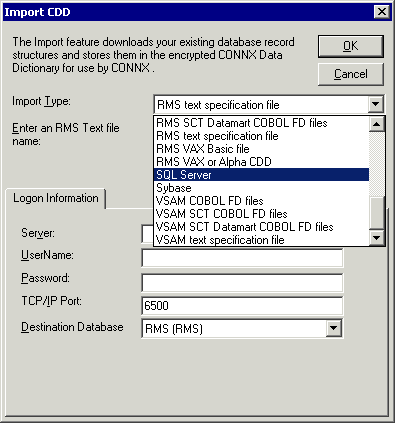
Select the Include System Tables check box to access system tables. Select the Get Statistics check box to identify table sizes. This is used by CONNX query optimization.
Select ODBC Provider under Select Provider Type, and then click the Select DSN button in the Logon Information pane.
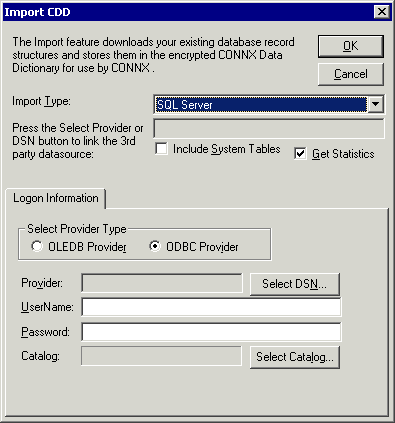
The Select ODBC DSN dialog box appears. You can choose either a user, system, or file-based DSN, although it is recommended that a file-based
DSN be used, since it can be accessed through a network by multiple users.
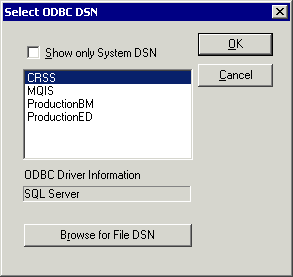
File DSN (Recommended)
Click the Browse for File DSN button to open the Open dialog box. Select a file-based DSN from lists of available .dsn files.
System DSN or User DSN
Select the Show only System DSN check box to view a list of system DSNs only. Clear the check box to show a list of both user and system DSNs. Note that
the ODBC Driver Information text box displays information about the selected ODBC DSN. The same information can be found in
the ODBC Data Source Administrator dialog box. Click the OK button in the Select ODBC DSN dialog box to return to the Import CDD dialog box, which displays the selected DSN.
In this example, a system DSN is used. Click the OK button.
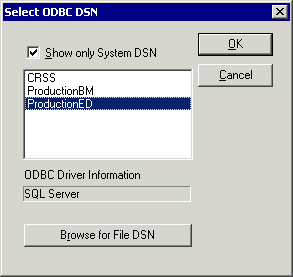
The Import CDD dialog box appears.
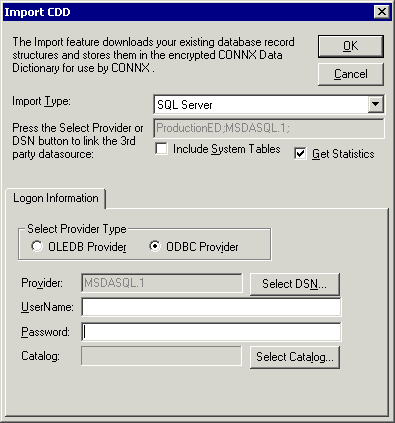
Enter a user name and password appropriate to the data source.
To specify a catalog, enter a name and password for the database, and then click the Select Catalog button to log into the database and view a list of available catalogs. The Select a Catalog dialog box appears.
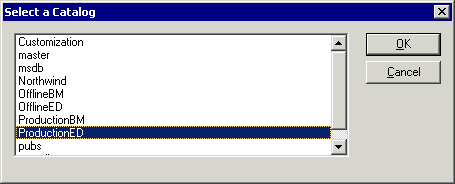
Select a catalog, and then click the OK button to return to the Import CDD dialog box. Normally, only user-defined tables can be selected for import.
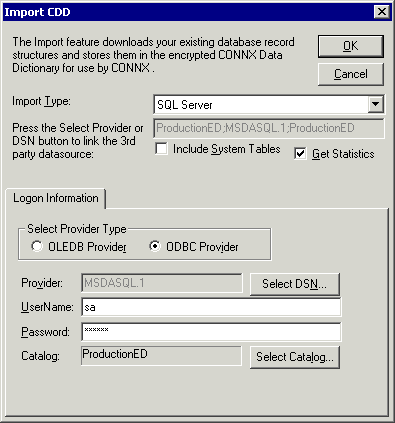
Click the OK button. The CONNX Import Table Selection dialog box appears with a list of available table names. To import all of the tables in the database, click the Add All button. To import some of the tables in the database, select the tables to import, and then click the Add button.
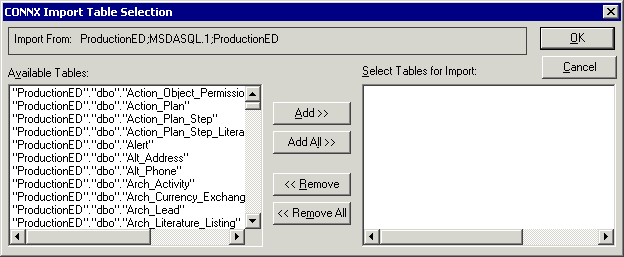
Click the OK button to import the selected tables into CONNX. The imported tables are added to the list of accessible objects in the CONNX
Data Dictionary Manager window.
